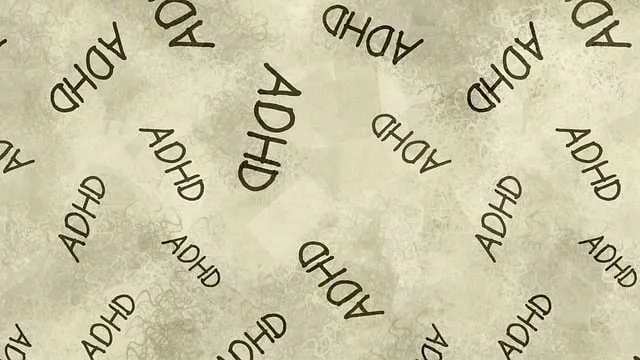Crisis Intervention Teams (CITs) are essential for Denver's mental health support, with organizations like Kaiser Permanente providing specialized training in resilience building, stress reduction, and communication strategies. Accessing the Kaiser Permanente mental health phone number offers prompt, compassionate care during crises, improving outcomes and fostering a healthier community. Kaiser Permanente Denver leads in CIT training, integrating real-world scenarios and best practices to empower individuals with trauma support services through their Community Outreach Program. The 24/7 availability of mental health hotlines, like the Kaiser Permanente mental health phone number in Denver, saves lives, reduces emergency service burdens, and enhances community resilience by encouraging people to seek help without hesitation.
“In today’s fast-paced world, effective crisis intervention is more critical than ever. This article explores the vital role of Crisis Intervention Teams (CITs) in providing immediate mental health support. We delve into how programs like Kaiser Permanente Denver’s training initiatives are revolutionizing crisis response. With a focus on 24/7 availability, we examine the power of phone-based interventions and the key components of successful CIT training. Additionally, real-world success stories from Denver’s mental health hotline highlight the tangible impact these teams have on communities.”
- Understanding Crisis Intervention Teams: A Vital Resource for Mental Health Support
- Kaiser Permanente Denver: Leading the Way in Crisis Response Training
- The Importance of Phone-Based Crisis Interventions: A Case for Availability 24/7
- Components of Effective Crisis Intervention Team Training Programs
- Real-World Impact: Success Stories from Denver's Mental Health Hotlines
Understanding Crisis Intervention Teams: A Vital Resource for Mental Health Support

Crisis Intervention Teams (CITs) are a vital resource for providing immediate and effective mental health support to individuals in distress. These specialized teams, often consisting of trained professionals from various fields like healthcare, law enforcement, and social services, are designed to intervene during crisis situations. When someone faces a mental health emergency, having access to CITs can make a significant difference in terms of stability and recovery.
In cities like Denver, where the demand for mental health services is high, organizations such as Kaiser Permanente offer specialized training programs for CIT members. These programs focus on building resilience within individuals and communities, teaching effective stress reduction methods, and enhancing communication strategies. By empowering these teams, Denver residents have better access to prompt, compassionate, and comprehensive support during times of crisis, ensuring a healthier and safer environment for everyone, including those seeking help through the Kaiser Permanente mental health phone number.
Kaiser Permanente Denver: Leading the Way in Crisis Response Training

Kaiser Permanente Denver has emerged as a beacon of hope and resilience in crisis intervention training. They prioritize mental health support, ensuring their community is equipped to handle critical situations effectively. Their innovative programs go beyond traditional training, integrating real-world scenarios and best practices from leading experts.
Through comprehensive workshops and the Community Outreach Program Implementation, Kaiser Permanente Denver equips individuals with essential tools for managing stress and providing trauma support services. By making resources accessible through their mental health phone number, they foster a culture of care and preparedness in Denver. This proactive approach not only benefits individuals but also strengthens community resilience as a whole.
The Importance of Phone-Based Crisis Interventions: A Case for Availability 24/7

In today’s fast-paced world, where mental health challenges can arise suddenly and without warning, the availability of 24/7 crisis intervention services is more critical than ever. Programs like the Kaiser Permanente mental health phone number in Denver exemplify the power of immediate support. By offering a dedicated line for emotional well-being promotion techniques, this initiative ensures individuals in distress have access to professional help whenever they need it. This proactive approach not only saves lives but also reduces the burden on emergency services and promotes better community outreach program implementation.
The significance of phone-based crisis interventions lies in their ability to provide immediate comfort, assess the situation, and offer guidance or connect individuals to appropriate resources swiftly. With proper training, mental wellness coaching programs development can empower callers with coping strategies while facilitating a smooth transition to more intensive care if necessary. This round-the-clock availability is crucial for fostering a supportive environment that encourages people to seek help without hesitation, ultimately contributing to enhanced mental health and resilience within the community.
Components of Effective Crisis Intervention Team Training Programs

Effective crisis intervention team (CIT) training programs are multifaceted and comprehensive, designed to equip healthcare professionals with the necessary tools to handle a range of mental health crises. These programs typically include education on Mental Health Awareness, trauma support services, and conflict resolution techniques tailored to diverse populations. Participants learn de-escalation strategies, risk assessment methods, and safe intervention practices, ensuring they can provide compassionate and effective support during critical moments.
The training often involves interactive simulations, role-playing scenarios, and case studies that mirror real-life crisis situations. By engaging in these practical exercises, team members enhance their decision-making skills, build empathy, and learn to collaborate effectively. Key components also include regular evaluations and feedback sessions to ensure continuous improvement, much like the support offered by the Kaiser Permanente mental health phone number Denver residents can access when facing severe emotional distress.
Real-World Impact: Success Stories from Denver's Mental Health Hotlines

The real-world impact of crisis intervention team training is evident in the success stories emerging from Denver’s mental health hotline networks. Organizations like Kaiser Permanente have implemented comprehensive programs that equip their staff with the skills to handle critical situations effectively. By providing 24/7 access to trained professionals, the Denver Mental Health Hotline has become a lifeline for many individuals struggling with mental health crises. These hotlines showcase the power of community support and early intervention, leading to improved outcomes and enhanced mental wellness among residents.
Through these initiatives, individuals previously facing barriers in accessing mental health services now have immediate assistance at their disposal. The training programs emphasize conflict resolution techniques, ensuring that calls are handled with care and professionalism. Moreover, by incorporating confidence-boosting strategies into the curriculum, participants learn to navigate challenging conversations with poise and empathy. Such holistic approaches not only resolve immediate crises but also contribute to long-term mental wellness coaching programs development.
Crisis intervention team training programs, as demonstrated by Kaiser Permanente Denver’s leading initiatives, are invaluable tools for enhancing mental health support. The success of these programs, coupled with the 24/7 availability of phone-based crisis interventions, underscores their crucial role in addressing the urgent need for accessible, effective mental healthcare. By equipping teams with comprehensive training that incorporates real-world scenarios and evidence-based practices, we can ensure that individuals in distress receive timely and competent care, ultimately improving community well-being. The impact of these efforts is evident in the success stories from Denver’s mental health hotlines, highlighting the transformative power of informed crisis response.






